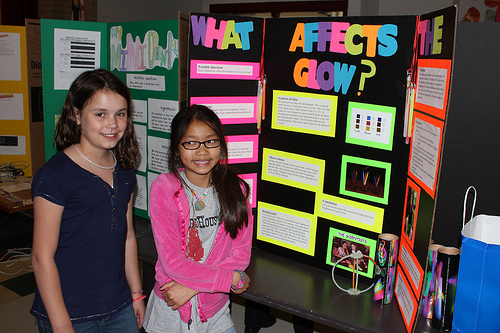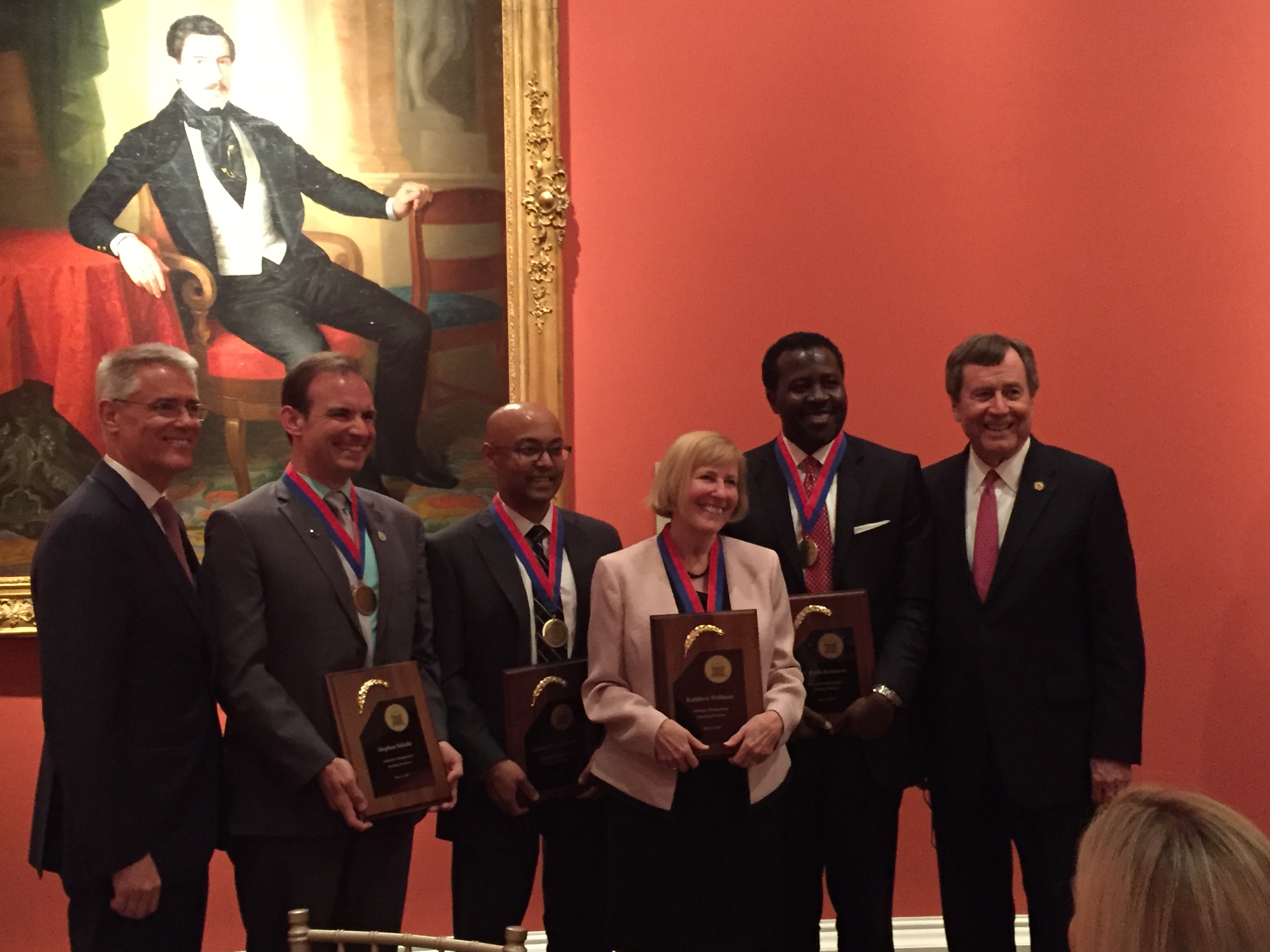I’ve been engaged in a small conversation on a social network regarding the labeling of food as “genetically modified.” I’ve written specific thoughts about the scientific problems with that labeling recently in this blog [1]. I thought it might be useful to explain here how I got engaged in this most recent conversation, which is not yet concluded (I think), and what I’ve said for my part in the conversation.
It started when I noticed that somebody on my “following” list had re-posted comments from another person (whom I am not following). The comments were in reference to the editors of Scientific American coming out in writing as being against GMO food labeling [2], for all the reasons that scientific organizations, like the AAAS, have also come out against them: they are scientifically inaccurate, and thus are the use of bad science to inform science-based policy. The editors state their position clearly and crisply, “Instead of providing people with useful information, mandatory GMO labels would only intensify the misconception that so-called Frankenfoods endanger people’s health . . . ”
The comments on this article that made some vague implications about consumer choice and the “naivety of scientists,” with heavy overtones of having conflated several issues – some scientific and some not – into one straw man issue. The original poster complained that the Scientific American editors ” . . . can’t possibly let people have the facts . . . ” and referred to the naivety of scientists regarding the substance of the issue, which was not about the science but rather about control of the world’s food chain (with specific reference to Monsanto).
Both the original issue – GMO food labeling – and the comments that started me talking about this, grossly oversimplify the science (biology and genetic modification), setting up a straw man to be knocked down (“GMOs”), and then risk achieving the wrong goal. The right goal has nothing to do with genetic modification itself, but rather with the practices of some of the larger companies that employ this and many other practices in a way that creates a proprietary and protected food market under their control.
I posted a response to the person who shared the comments, saying,
I am curious: why do you believe that labeling food as “GMO” (genetically modified organism) will better inform consumers? All food – organic and otherwise – is genetically modified. It’s one thing to oppose food made by a food maker because of their economic or political practices; but to insist on non-scientific labeling of food is not the solution. I think, what you probably prefer, is clearer labeling about who made the food. That’s scientifically accurate, and lets consumers decide if they will send their money to, for instance, Monsanto. Labeling a food as “GMO” implies something bad or different about it; that’s scientifically inaccurate, since all food is genetically modified, only with varying degrees of control (the invention of agriculture was the invention of human genetic modification of plants through breeding and control – even organic farming selects winning traits and breeds out losing ones, and that’s the definition of “GMO”).
Scientists oppose this not out of naivete, but out of the desire for scientific accuracy in policy making. It’s a complete mis-representation of food science and biology to imply that GMO = bad. It’s a different thing to insist companies clearly label themselves as the manufacturer so consumers can make clear choices to spend currency on one company or another.
I want Monsanto to answer for their practices, and pay the price for their shady business in the marketplace. But when science is thrust into the public sphere, I also want it accurately represented in policy. GMO labeling, as currently pursued in states, in inaccurate and represents a gross misunderstanding of biology.
Another person engaged in the conversation, which was great, but seemed to have missed the point of what I was saying. They again conflated “food labeling” with “labeling GMO food” – not the same things. I support labeling food . . . just not using the straw man of “GMO,” but rather for the substantive cause of mapping the food supply, its origins, its producers, and its handlers. “GMO” is useless, in that sense.
Here was my reply to the comment I received:
Please don’t misunderstand what I am saying:
- I support labeling food to better indicate where and by whom it was produced; I would argue that the pinnacle of this labeling process would be full food-chain tracking (e.g. to help in unraveling food-born disease outbreaks).
- I support corporate food policy reform, especially regarding the patenting of genetic modifications; I support the enforcement of “publish all scientific trials” about food and drugs (including null results, so that we can actually assess the rate at which foods/drugs have the claimed benefits).
- However, since all food is genetically modified, if one is going to label some foods as “GMO” then scientifically one must label all food as “GMO.” Since science is being injected into this particular policy discussion, the science must be correct. As a citizen scientist, I will not stand idle while people misappropriate the field and its terminology and, in doing so, achieve the wrong political and policy end. Nobody has studied the environmental or health effects of every plant humans have modified since inventing agriculture; nonetheless, every time we bred for certain traits we modified, in a gross and largely uncontrolled way, the genomes of animals and plants – with unknown repercussions that are potentially far worse and far less-well-understood than the precision genetic modifications we are capable of executing now (along with double-blind studies, etc.).
I suspect that, at the real core of this debate is a desire to curb the business practices of large food corporations – food and gene patents, control of food commodity markets, and crushing family farms under legions of lawyers. I believe that my first two bullets above would go a long way to addressing that issue, without misrepresenting genetic modification as the straw man to be knocked down.
When you say “commonly consider” in reference to genetic modification and its definition, I would argue that using “common knowledge” as a defense of labeling is akin to advocating mob rule in science, and thus in science-based policy. Majority opinion does not rule in science; if that were the case, we’d have to teach astrology along side astronomy (since 50% of U.S. residents believe in astrology, that the stars decide our fate). I reject the notion of applying common public misconceptions of biology to then defend the labeling of food as “GMO.”
Rather than foster public misconception of science, I rather support the idea of better educating the public on matters of science – including biology, genetics, food science, and related issues – while at the same time curbing corporate overreach into the pantry and decisions made about food. These are two separate issues, in reality. GMO food labeling conflates them in a bad way that misrepresents science, and doesn’t actually address the real problem that, I think, people actually want to solve.
I care deeply about accurate use of science when informing science-based policy. To label one food as “GMO” is to completely get the core of biology incorrect. Besides, what people really want is to hold companies accountable for their behavior in the marketplace. Bastardizing science in the name of this quest will only do two things: breed fundamental misconceptions about science that will inhibit our society’s ability to function in a world that demands more creativity and innovation through science; and fail to accomplish the real goal, which is curbing or putting more checks on corporate power in a global economy where control of the food supply is, in fact, at stake.
[1] “Why you believe what you believe” (August 11, 2013)
[2] “Labels for GMO foods are a bad idea.” (Scientific American, August, 2013)




